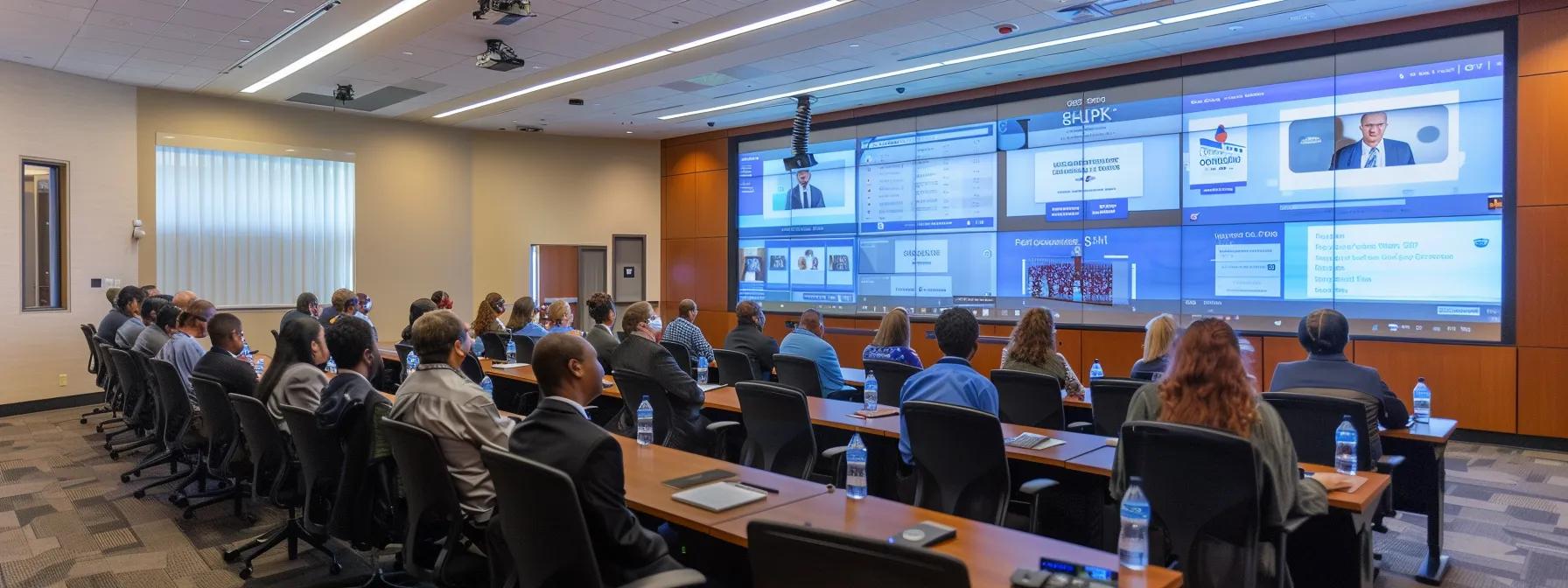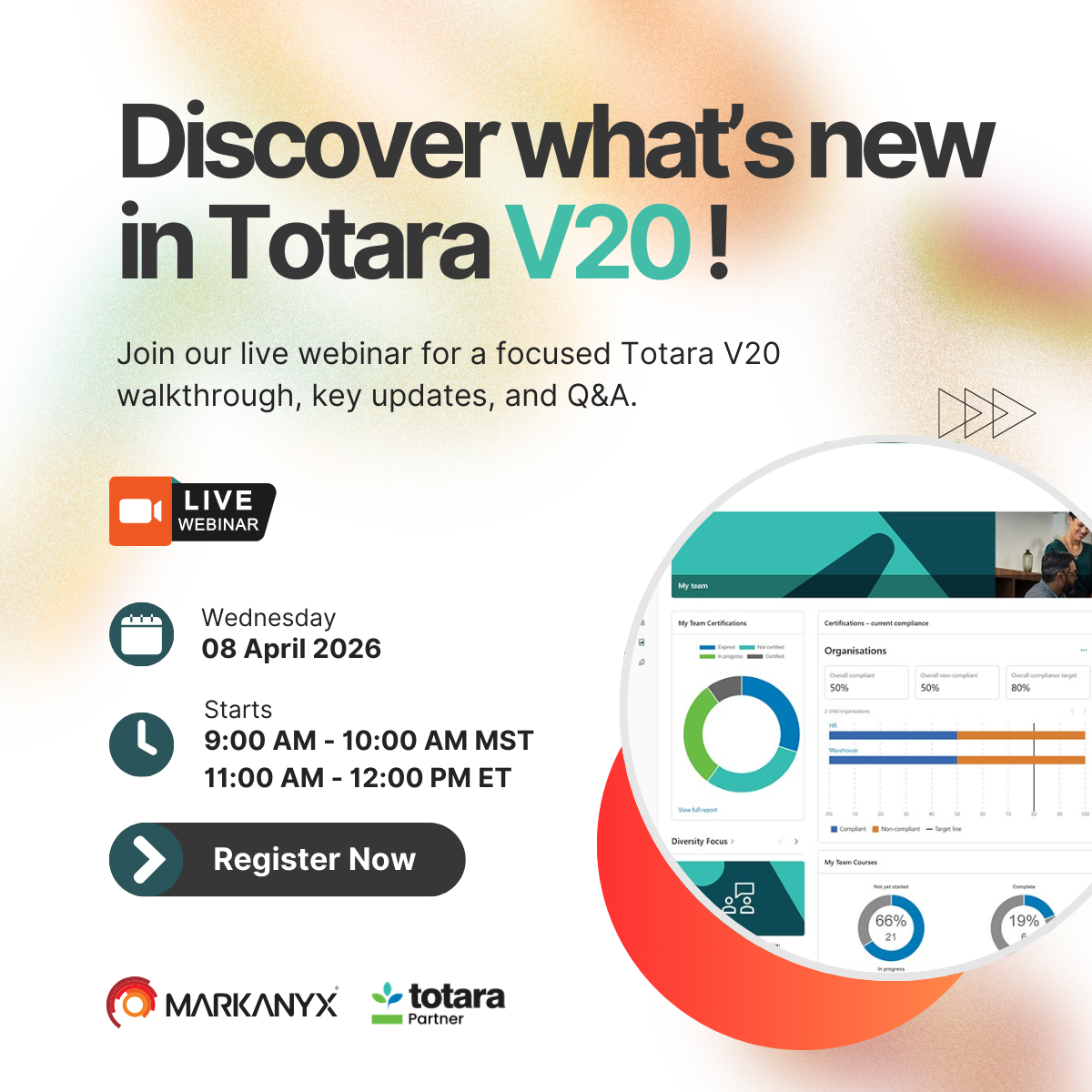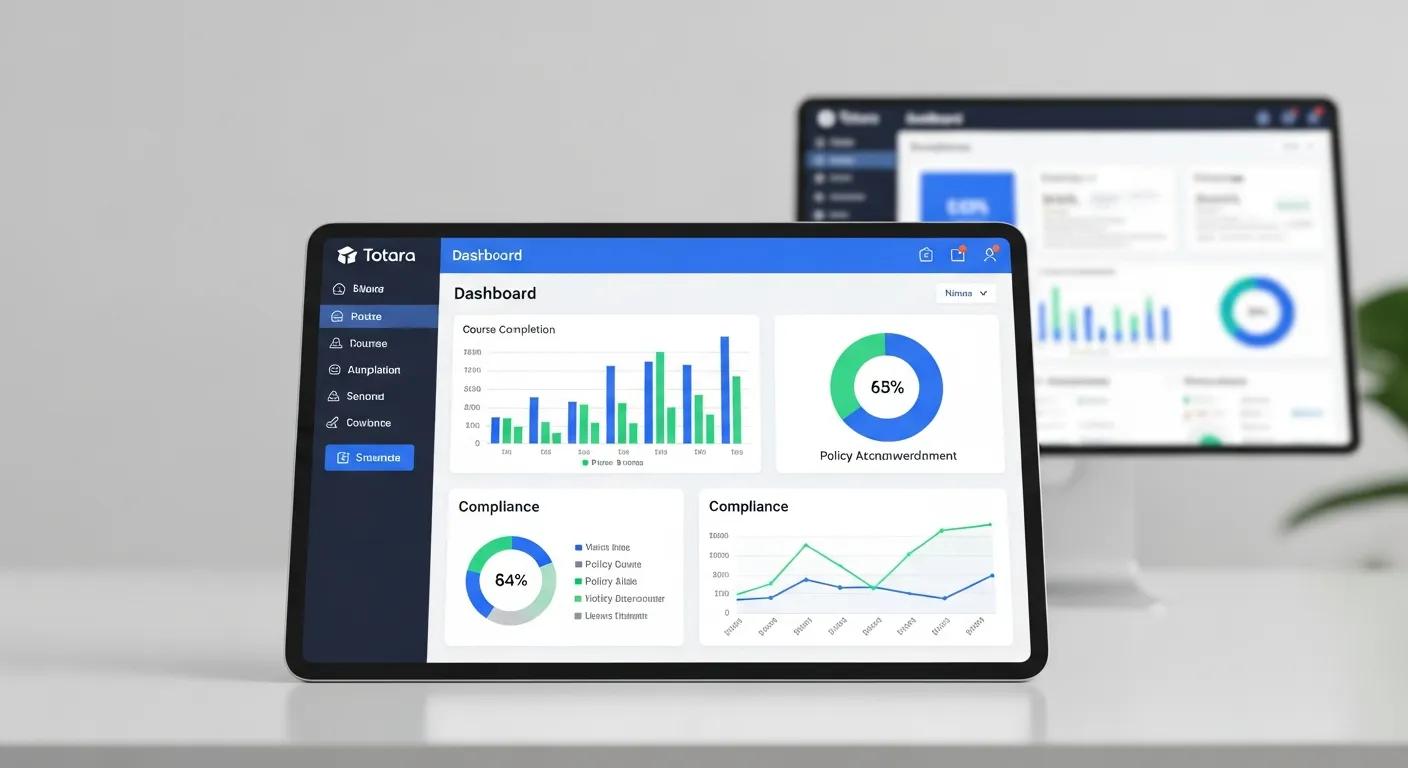
Personalized Healthcare Compliance Training with Totara Learn
In today’s complex regulatory landscape, ensuring that healthcare teams meet compliance requirements can be challenging. Personalized compliance training offers a critical solution by tailoring programs to each employee’s role and responsibilities. Leveraging advanced learning management systems (LMS) like Totara, organizations can streamline compliance processes, enhance staff competency, and boost engagement. This article explores personalized compliance training’s unique approach compared to standard programs, details how Totara supports custom e-learning solutions for healthcare compliance, and discusses the benefits, design steps, and common challenges of this tailored training approach.
What Is Personalized Compliance Training for Healthcare Teams?
Personalized compliance training is a bespoke educational method designed to address the unique challenges and regulatory requirements for different roles within a healthcare organization. Unlike one-size-fits-all solutions, it caters to varied learning needs, responsibilities, and risk exposures.
Healthcare organizations must ensure compliance with mandates like health insurance portability, patient confidentiality, and occupational safety. With personalized training, content is tailored: nurses learn about patient safety and infection control, while administrative staff cover documentation accuracy and legal compliance. This targeted approach increases learning outcomes and reduces compliance breaches and penalties.
The approach is defined by adaptable content, regular assessments, and continuous feedback. Totara’s advanced features enable the creation of interactive modules, quizzes, and simulations focused on retaining regulatory knowledge, ensuring that every team member understands the standards they must meet.
How Does Personalized Training Differ From Standard Compliance Programs?
Personalized training differs from standard programs by focusing on individual learning paths and adaptive assessments. Each module is specially developed based on a learner’s role, past performance, and specific regulatory responsibilities rather than relying on generic content. This tailored focus improves knowledge retention and relevance since employees receive information they can apply immediately. Additionally, regular updates and feedback loops ensure real-time course corrections that are typically missing from one-size-fits-all approaches.
Why Is Role-Based Training Essential for Healthcare Staff Compliance?
Role-based training aligns educational objectives with specific job responsibilities and risk profiles. Clinical staff require detailed instruction on patient care and infection control, while administrative personnel need training on data security and regulatory reporting. By focusing content on the functions of each role, training is more engaging and effective. This approach also helps identify knowledge gaps, reduces the time to achieve certifications, and fosters a culture of continuous improvement within the organization.
Which Healthcare Regulations Does Personalized Compliance Training Address?
Personalized training covers a broad range of regulations, including HIPAA, OSHA standards, infection prevention guidelines, and state-specific mandates. By customizing content for different departments, organizations ensure that every team understands the key legal and ethical requirements for safe operations. Training modules can also integrate updates on regulatory changes, keeping healthcare teams informed about emerging risks. This dynamic approach is vital in an environment where non-compliance may lead to severe penalties and damage to public reputation.
How Does Totara Support Custom E-Learning for Healthcare Compliance?
Totara is a robust open-source LMS that supports creating, managing, and tracking personalized compliance training for healthcare teams. Its flexible architecture is ideal for implementing role-based learning paths and integrating seamlessly with HR and compliance systems. Totara enables organizations to tailor courses to meet specific healthcare regulations while ensuring efficient data management and reporting.
What Are the Key Features of Totara Learn for Healthcare Training?
Totara Learn includes key features designed to enhance personalized compliance training:
- A drag-and-drop course builder to create interactive modules with quizzes, simulations, and real-time feedback.
- • Granular reporting and analytics that allow administrators to track individual performance and evaluate training efficacy.
- • Multi-language support, ensuring accessibility for diverse workforces.
- • A modular design that enables quick integration of regulatory updates and internal policy changes.
For example, Totara can adjust course content automatically based on individual test results—supplementing modules for those who need additional support. Regular assessments and the system’s integration with HR systems ensure that compliance data is managed centrally, supporting both internal audits and external reviews.
How Does Totara Integrate With Existing HR and Compliance Systems?
Totara integrates with HR and compliance systems using open APIs and standard protocols such as SCORM and xAPI. This seamless interoperability means that when an employee completes a compliance module, their records are automatically updated in HR databases. Such integration minimizes manual data entry, reduces errors, and provides a unified view of employee performance and compliance adherence, which is essential during audits.
Additionally, Totara’s integration framework supports real-time data sharing and detailed reporting through dashboards, helping administrators quickly identify gaps in training and evaluate overall performance.
How Can Totara’s Reporting and Analytics Improve Compliance Tracking?
Totara’s reporting and analytics tools offer a comprehensive snapshot of training effectiveness. Administrators can generate customizable reports that track course completion, assessment scores, and certification expirations. This data enables proactive intervention—if a module shows underperformance, remedial training can be quickly implemented. The analytics support accountability and continuous improvement by linking performance data to audit scores and operational outcomes, thus informing strategic decisions regarding training investments.
Key Benefits of Personalized Compliance Training for Healthcare Teams
Personalized compliance training improves staff competency, boosts engagement, and lowers training time and costs. Tailored content ensures that healthcare professionals receive information that is directly relevant to their daily responsibilities, leading to better retention and practical application. This approach prepares employees to meet the specific regulatory requirements of their roles efficiently.
How Does Tailored Training Improve Staff Competency and Engagement?
Tailored training directly aligns course content with job responsibilities. For instance, clinical staff can engage in scenario-based simulations for patient safety, while administrative workers might focus on modules covering data privacy and documentation standards. Such role-specific training increases the relevance of the material, leading to improved exam scores and knowledge retention. Enhanced engagement through interactive and challenging content motivates staff, contributing to improved operational efficiency and enhanced patient safety.
What Impact Does Personalized Training Have on Regulatory Compliance Rates?
Customized training leads to better understanding and adherence to complex regulations, such as HIPAA and OSHA standards. By using modules designed specifically for healthcare challenges, organizations have observed noticeable reductions in compliance error rates. The frequent assessments and scenario-based learning components reinforce the standards effectively, helping to reduce the risk of regulatory breaches, fines, and reputational damage.
How Does Customization Reduce Training Time and Costs for Healthcare Organizations?
By focusing only on content that is directly relevant to each role, personalized training minimizes extraneous information. This efficiency reduces the overall time spent on training sessions and leads to cost savings. Organizations that have adopted this training method report significant reductions in the need for repeated sessions or remediation. Automated assessments and integrated feedback further streamline the training cycle, lowering the total cost of ownership for compliance training programs.
How to Design and Implement Custom E-Learning Compliance Programs for Healthcare Teams?
Designing custom e-learning compliance programs starts with a thorough needs assessment and continues through curriculum design, content development, and continuous improvement. This process requires collaboration among subject matter experts, instructional designers, and IT administrators to meet all necessary regulatory requirements.
What Steps Are Involved in Needs Assessment and Curriculum Design?
Successful curriculum design begins with assessing the specific regulatory challenges and identifying skill gaps through compliance audits, employee feedback, and HR data. With these insights, curriculum designers develop a tailored learning path that includes core modules, role-specific content, and supplementary resources. Clear learning objectives are established, and interactive elements, such as case studies and quiz assessments, are integrated into the curriculum to ensure engagement and compliance. Detailed documentation of learning outcomes further aids in future evaluations and audits.
How to Develop Role-Specific E-Learning Modules and Assessments?
Developing effective role-specific modules involves understanding the unique functions of each job role in a healthcare setting. This design process requires input from department heads and regulatory experts to ensure that the modules reflect actual workplace challenges. Interactive simulations, scenario-based activities, and multiple-choice assessments are incorporated to test competency and reinforce learning. Totara’s adaptive assessment engine tailors tests based on individual progress, ensuring that each learner is adequately challenged. Regular performance reviews help refine content and maintain compliance standards.
What Are Best Practices for Delivering Personalized Learning Paths?
Best practices include leveraging adaptive learning technologies and offering content in diverse formats such as videos, infographics, and interactive simulations. Totara’s mobile-friendly design enables access on various devices, ensuring that training can be completed on the go. Breaking content into microlearning segments helps maintain focus and improve retention. It is also essential to incorporate regular automated feedback and instructor-led sessions to address any learning difficulties promptly. Gamification elements, like digital badges and leaderboards, further enhance motivation and foster a culture of continuous improvement.
Which Online Compliance Courses Are Most Effective for Healthcare Professionals?
Effective online compliance courses for healthcare professionals cover critical topics ranging from data privacy to infection control. These courses are most beneficial when they are interactive, scenario-based, and regularly updated to reflect current regulatory developments.
What Topics Should Online Compliance Courses Cover for Healthcare Teams?
Courses should address subjects such as HIPAA regulations, OSHA standards, patient privacy protocols, and safe medication practices. They must also cover departmental needs like medical billing, documentation standards, and emergency response procedures. Modules that blend regulatory theory with real-world case studies provide a comprehensive understanding of compliance challenges. Regular updates ensure that the content remains current with legal and regulatory changes.
How to Evaluate the Quality and Relevance of Compliance Training Software?
Key factors include user interface design, ease of integration, and robust reporting capabilities. Totara’s analytical tools track progress and compliance rates, which serve as critical metrics for training effectiveness. The software should support custom course creation, adaptive assessments, and mobile access to ensure flexibility and high user engagement. Reviews from similar healthcare organizations can offer insights into the software’s real-world performance and sustainability.
What Are Examples of Successful Online Compliance Courses Using Totara?
Successful examples include courses on HIPAA best practices, infection control procedures, and emergency preparedness drills. Organizations using Totara often report a reduction in compliance incidents and improvements in staff certification rates. These courses, which use adaptive learning paths and interactive simulations, have been effective in enhancing content retention and practical application. Detailed reporting features also allow for quick identification of areas needing additional training, further underscoring Totara’s value.
How Can Healthcare Organizations Measure the Success of Compliance Training Programs?
Measuring success relies on both qualitative and quantitative data. Key metrics include course completion rates, assessment scores, competency improvements, and certification status. Monitoring these through Totara’s real-time dashboards helps administrators identify trends, address weaknesses, and assess overall training effectiveness.
What Key Metrics Track Training Progress and Compliance Adherence?
Metrics such as completion rates, quiz scores, and certification expirations provide a clear picture of training progress. Additional indicators include the time taken to complete modules and the number of compliance breaches recorded. Linking these metrics to operational outcomes like reduced administrative errors or improved patient safety helps demonstrate how training impacts overall performance.
How to Use Analytics to Identify Training Gaps and Improve Programs?
Analytics tools within Totara allow for detailed review of individual performance data to detect trends and potential gaps in knowledge. For instance, if many staff members struggle with modules on data privacy, administrators can refine the content or deploy remedial sessions. Comparing pre- and post-training metrics helps quantify the impact and directs future training improvements.
What Role Do Feedback and Assessments Play in Measuring Training Effectiveness?
Regular quizzes, practical assessments, and surveys provide immediate feedback on learners’ understanding. Totara’s adaptive assessments capture data on learning styles and retention, allowing for real-time course adjustments. Combined, these feedback mechanisms offer a holistic view of training effectiveness and ensure continuous improvement in both content and delivery.
What Are Common Challenges in Personalized Healthcare Compliance Training and How to Overcome Them?
Implementing personalized compliance training comes with challenges, including catering to diverse learning styles and managing constant regulatory updates. However, with adaptive strategies and tools like Totara, these challenges can be effectively managed.
How to Address Diverse Learning Styles and Varying Staff Roles?
Healthcare teams have varied learning preferences—visual, auditory, and kinesthetic—and cover different roles. To meet these needs, training should offer mixed media formats such as videos, interactive simulations, and written modules. Totara’s adaptive features allow content to be customized for each individual, ensuring that whether an employee learns better through demonstration or interactive quizzes, the training remains effective.
What Strategies Ensure Ongoing Compliance Amid Regulatory Changes?
Continual regulatory updates require regular revisions of training materials. Automated content updates, regular refreshers, and a dedicated compliance team can keep courses current. Totara’s dynamic framework allows administrators to quickly incorporate changes, while feedback loops ensure that outdated content is promptly revised.
How to Maintain Engagement and Motivation in Online Compliance Courses?
Keeping learners engaged can be achieved through gamification, interactive content, and regular feedback cycles. Totara’s platform supports personalized learning paths with rewards such as digital badges and progress certificates. Regular virtual meetings and discussion forums further encourage interaction and maintain motivation.
Frequently Asked Questions
Q: What are the primary benefits of personalized compliance training for healthcare teams?A: It enhances staff competency by tailoring learning to specific roles, ensuring relevant content that leads to increased engagement, better retention, and reduced compliance breaches.
Q: How does Totara support the customization of compliance training content?A: Totara offers a flexible, open-source platform with adaptive learning paths, drag-and-drop course creation, and real-time analytics. Its integration with HR systems streamlines tracking and continuous improvement.
Q: Why is role-based training so crucial in healthcare compliance programs?A: It ensures that each employee receives information pertinent to their responsibilities. Clinical staff focus on patient safety and infection control, while administrative staff address data privacy and documentation, reducing the risk of compliance failures.
Q: What key metrics should healthcare organizations monitor to evaluate compliance training success?A: Metrics include course completion rates, quiz scores, competency improvements, and certification expirations. Totara’s dashboards make it easier to track these and correlate them with improved operational outcomes.
Q: How can organizations overcome challenges related to diverse learning styles in compliance training?A: By incorporating various formats—videos, simulations, and text-based modules—and using adaptive learning features to cater to individual preferences, ensuring effective training for all.
Q: What strategies can help maintain ongoing engagement in online compliance training?A: Effective strategies include gamification, regular content updates, interactive assessments, and continuous feedback via surveys and virtual sessions, all of which keep training engaging.
Q: How do continuous updates in training content impact regulatory compliance?A: They ensure that the training materials reflect the latest regulatory changes and best practices, reducing the risk of breaches. Totara’s capability to rapidly integrate updates supports this dynamic approach.
Final Thoughts
Personalized compliance training offers healthcare organizations a powerful tool to mitigate risk while enhancing staff competencies through tailored learning. By leveraging Totara’s robust LMS features, you can develop role-specific content that not only meets regulatory requirements but also drives engagement and efficiency. The integration of advanced analytics, adaptive assessments, and interactive modules results in measurable improvements in compliance and overall operational excellence. Continually refining your training programs will help your organization stay ahead of regulatory updates and industry challenges, ensuring it remains compliant and future-ready.
Totara’s powerful flexibility and adaptive learning paths make it the ideal solution for healthcare organizations aiming to meet strict compliance standards while supporting staff development. Whether you’re managing annual certifications or delivering role-specific training, Totara Learn ensures every healthcare professional gets exactly what they need, when they need it. Ready to streamline compliance and empower your team?Contact Markanyx, Canada’s official Totara 19 Suite provider, for a free consultation and demo tailored to the healthcare sector.





